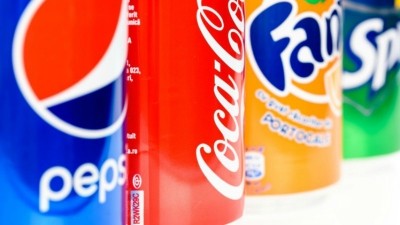Regulatory Review: See the regulatory developments happening in the health and nutrition industry

FSMP in China: South Korean products accepted by Chinese authorities for the first time
The Chinese authorities have accepted Foods for Special Medical Purposes (FSMPs) made by a South Korean firm for the first time.
Maeil Dairies was granted FSMPs approval for two of its products, namely ‘Maeil Lactose Free’, an infant lactose-free formula, and ‘Maeil Preemie’, an infant formula for premature and low birth weight infants.
Both products are catered to infants aged 0 to 12 months and are produced from the company’s Pyeongtaek factory, located in the Gyeonggi province.
Food fortification in India: Supply and demand alignment the main hurdle
The Food Safety and Standards Authority of India (FSSAI) has pointed out supply and demand alignment as one of the key challenges in scaling up food fortification rates in the country.
The food regulator said that fortification rate had gained momentum, achieving a fortification rate of 47% in vegetable oil and 36.6% in milk.
“[At present], 47% of the vegetable oil produced by top players in the refined packaged oil industry and 36.6% of the milk in the organised sector are being fortified,” a spokeswoman said in response to queries from NutraIngredients-Asia.
Milk and money: Asia’s paediatric associations under fire for taking infant formula firm funding
Half of Asia’s paediatric associations had received commercial funding from breast-milk substitutes (BMS) infant formula manufacturers, against recommendation from the World Health Assembly, new research claims.
A World Health Assembly Organisation resolution in 2016 had urged member states to “end inappropriate promotion of food for infants and young children” and reaffirmed the need to promote exclusive breastfeeding in first six months of life.
However, a study recently published in the BMJ Journals found that a high proportion of national paediatric associations had received funding from “breast milk substitute” (BMS) firms.
China’s new Free Trade Zones: Regional supplements exports to benefit but inconsistent regulations still a hurdle
China’s addition of six new Free Trade Zone (FTZ) will strengthen regional trade for supplements and functional foods, but a lack of harmonised regulations means it would not fulfil its potential, according to industry players.
On August 26, China’s state council announced six new pilot FTZs, namely Shandong, Jiangsu, Guangxi, Hebei, Yunnan, and Heilongjiang, bringing the total number to 18.
Free trade zones in China allow goods to be landed, handled, manufactured, and re-exported without excessive intervention of the customs authority.
New Zealand F&B industry doubts efficacy of Countdown’s under-16 energy drink ban
The New Zealand food and beverage industry has responded with doubt over the efficacy and benefits of supermarket Countdown’s decision to ban the sales of energy drinks to all consumers under the age of 16.
Countdown announced the decision earlier this month, saying that signage has been put up in stores to ‘let younger customers know they need to provide ID when buying energy drinks’.
Countdown General Manager Corporate Affairs, Safety and Sustainability Kiri Hannifin said via a statement that support for this initiative was ‘overwhelmingly positive’.












